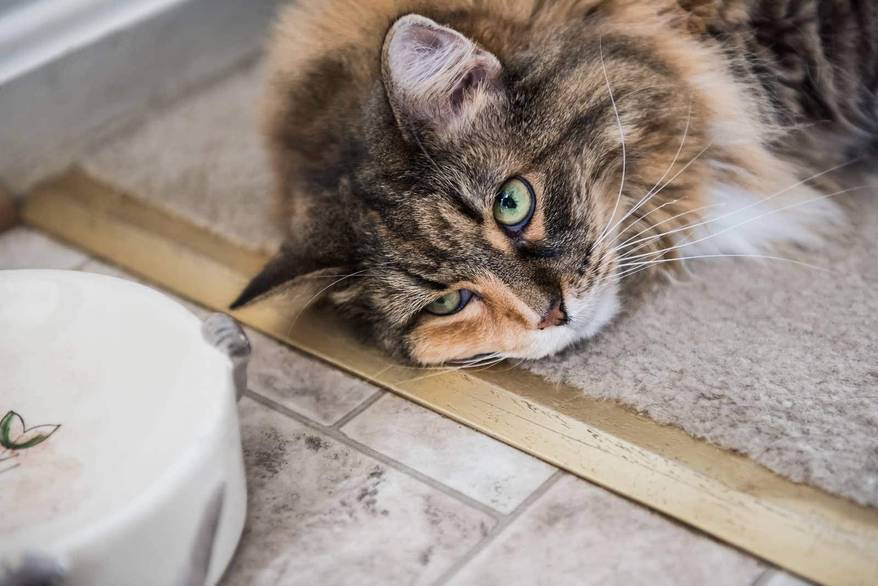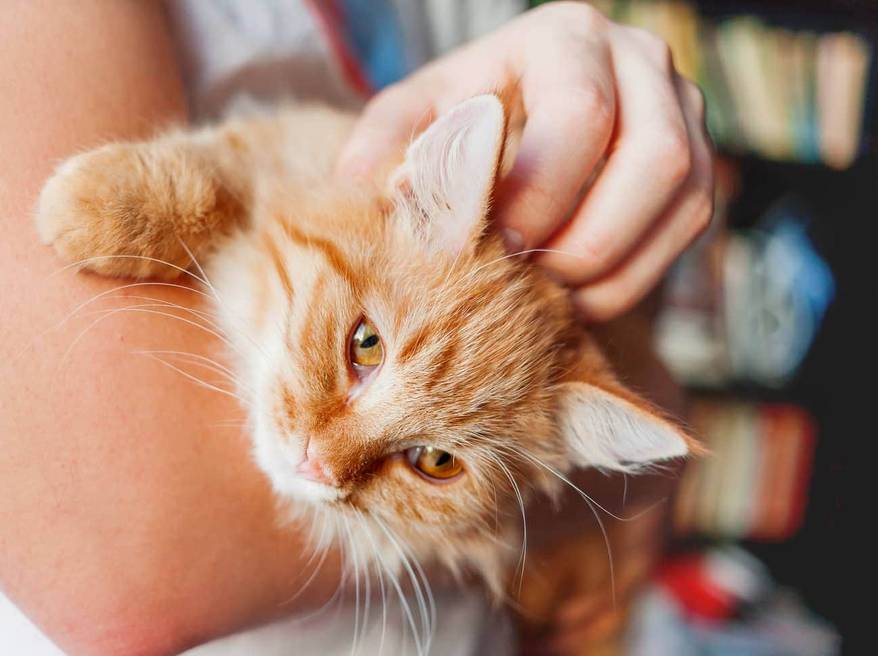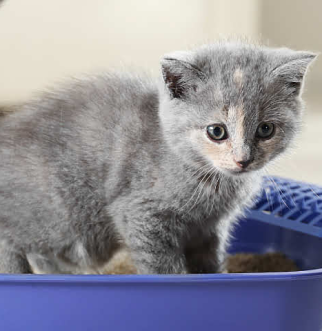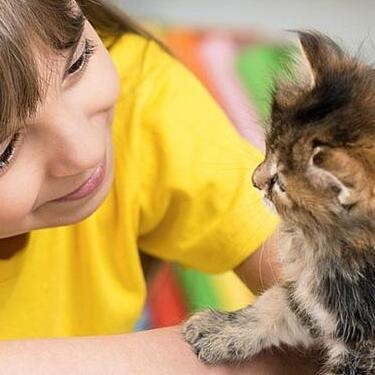
-
Find the right food for your pet
Take this quiz to see which food may be the best for your furry friend.
Find the right food for your pet
Take this quiz to see which food may be the best for your furry friend.
Featured products
 Adult Healthy Cuisine Roasted Chicken, Carrots & Spinach Stew Dog Food
Adult Healthy Cuisine Roasted Chicken, Carrots & Spinach Stew Dog FoodDelicious roasted chicken paired with tender vegetables in a succulent stew
Shop Now Adult 7+ Perfect Digestion Chicken, Whole Oats & Brown Rice Recipe Dog Food
Adult 7+ Perfect Digestion Chicken, Whole Oats & Brown Rice Recipe Dog FoodScience Diet's breakthrough nutrition supports ultimate digestive well-being & healthy microbiome for dogs age 7+
Shop Now Small & Mini Savory Stew with Chicken & Vegetables Dog Food
Small & Mini Savory Stew with Chicken & Vegetables Dog FoodA delicious complement to the nutrition of Science Diet Small & Mini 7+ dog food
Shop NowFeatured products
 Adult 7+ Senior Vitality Chicken & Vegetable Stew Cat Food
Adult 7+ Senior Vitality Chicken & Vegetable Stew Cat FoodImproves Everyday Ability to Get Up & Go
Shop Now Adult Savory Entrée Can Variety Pack Cat Food
Adult Savory Entrée Can Variety Pack Cat FoodPrecisely balanced nutrition with the delicious taste of savory minced chicken to help fuel the energy needs of cats during the prime of their life
Shop Now Adult 7+ Tender Tuna Dinner Cat Food
Adult 7+ Tender Tuna Dinner Cat FoodWith delicious chunks in a decadent gravy
Shop Now -
Dog
- Dog Tips & Articles
-
Health Category
- Weight
- Food & Environmental Sensitivities
- Urinary
- Digestive
- Joint
- Kidney
-
Life Stage
- Puppy Nutrition
- Adult Nutrition
- Senior Nutrition
Cat
- Cat Tips & Articles
-
Health Category
- Weight
- Skin & Food Sensitivities
- Urinary
- Digestive
- Kidney
-
Life Stage
- Kitten Nutrition
- Adult Nutrition
Featured articles
 Do Dogs and Cats have Belly Buttons?
Do Dogs and Cats have Belly Buttons?Learn whether cats & dogs have belly buttons like humans, what the function is, and if there are any health concerns associated with it.
Read More Does My Pet Hate Me?
Does My Pet Hate Me?Learn tips for bonding with your pet if you've ever thought, 'My dog doesn't like me, or 'Why do I have a standoffish cat?'
Read More Why Are Dogs and Cats So Cute?
Why Are Dogs and Cats So Cute?If waggy puppy dog tails and furry kitten yawns make you swoon, you're not alone. Why are cats so cute? And, dogs too! Let's find out!
Read More -


Concerned that your cat is not eating? It can be hard to tell a picky eating episode from a serious health issue. A change in your cat's routine is a concern, but figuring out the cause is the first step to getting your cat eating again.
Why Isn't My Cat Eating?
Truth: Your cat loves to eat. It's up there in her favorite activities, along with sleeping, playing and trying to get her pet parents' attention. But eating is also a basic element of survival, without which your cat's health may rapidly decline.

Changes in Food
Cats are creatures of habit and will typically resist change, especially to their meal plans. Have you recently changed your cat's food? Maybe they are stubbornly refusing to try the new flavor. Cats can take a while to accept new foods, so a slow transition is generally recommended. Your kitty can't go too long without eating, so they don’t eat for 24 hr even after offering the old food again, s it's time to explore other possibilities for why she isn't eating.
Changes in Environment
Your cat's stubbornness can pop up if they are unhappy with the surroundings. "Cats may also go on brief hunger strikes in response to environmental stressors, such as the presence of guests in your home," points out Animal Planet. Other environmental changes, such as moving to a new home or adding a new pet or baby to the mix, may affect eating habits, too. If you know these types of things stress your cat, talk to your veterinarian about ways to help your cat relax.
Possible Illness
Digestive issues, such as constipation, colitis and inflammatory bowel disease (or chronic inflammatory enteropathy), are stressful on your cat's body, leading to loss of appetite, gas, vomiting and diarrhea. Other underlying illnesses that may affect appetite include kidney disease and dental problems. Banfield Pet Hospital explains that oral problems, like dental disease, oral tumors, infections or injuries, that make chewing difficult or uncomfortable could cause your cat to stop eating. Be sure your veterinarian includes a comprehensive dental exam during every checkup.
Because only a vet can diagnose an illness, contact your vet's office right away with any unusual or significant health changes. You should also take your cat in for a dental checkup if refusing dry food or favoring one side of the mouth when chewing.


Tasty Tips
How to Get a Cat to Eat
If your cat is snubbing meals, try expanding theiroptions, exploring new flavor combinations or offering a few form.. When trying out new foods, do so gradually to help your cat toacclimate to new flavors and textures If your cat is reluctant to try a new food, you can try adding a small amount of broth to the dry food or warming the canned food.
Ariel Mosenco, DVM, DACVIM, tells Petcha to never force food on your cat. Forcing a cat to eat or swallow can trigger a negative association with eating, causing them to avoid the food bowl even more. Instead, find ways to encourage your cat to eat. If your cat becomes stressed easily, it is important to think about preparing your cat for parties at your house and plan ahead for introducing her to a new furry friend, which will help them cope with lifestyle changes.
In addition to what your cat eats, take into account where she dines. "Cats can be choosy about where they eat. Keep in mind that heavy-traffic areas, noise, the presence of other animals, dirty food containers or nearby litter boxes can deter a cat from eating," says the Cornell Feline Health Center. Seemingly minor changes can stress out your kitty, so create dedicated cat feeding areas in your house.

When Should I Call the Vet?
Here's a good rule of thumb for pet parents: when in doubt, call your vet.
You and the vet share the goal of keeping your furry friend in tip-top shape, and it's better to err on the side of caution. Contact the vet as soon as you notice a change, whether sudden or gradual, in your cat's behavior. Questioning why your cat isn't eating is an important one, especially if it's been more than a day since the last meal. If your kitty does need treatment, the earlier you get her started, the better.
Now that you know some causes for appetite loss and how to get a cat to eat, you can take an active role in helping your feline pal get back on the path to full health.


Christine O'Brien is a writer, mom, and long-time cat parent whose two Russian Blues rule the house. Her work also appears in Care.com, What to Expect, and Fit Pregnancy, where she writes about pets, pregnancy, and family life. Find and follow her on Instagram and Twitter @brovelliobrien.
Related products
Related articles

Cats are naturally very clean and chances are your kitten will already have learned how to use the litter box from her mother before she comes to live with you.

How do you get a cat to lose weight? Learn all about cat foods for weight loss, including how to choose weight control cat food and exercise tips.

What is the best food for an overweight cat? Learn all about weight control food for cats, including what's in it and how it works.

Discover how to train your cat, starting with very basic first steps that both reward good behavior and discourage the bad.

Put your cat on a diet without them knowing
Our low calorie formula helps you control your cat's weight. It's packed with high-quality protein for building lean muscles, and made with purposeful ingredients for a flavorful, nutritious meal. Clinically proven antioxidants, Vitamin C+E, help promote a healthy immune system.
Put your cat on a diet without them knowing
Our low calorie formula helps you control your cat's weight. It's packed with high-quality protein for building lean muscles, and made with purposeful ingredients for a flavorful, nutritious meal. Clinically proven antioxidants, Vitamin C+E, help promote a healthy immune system.

